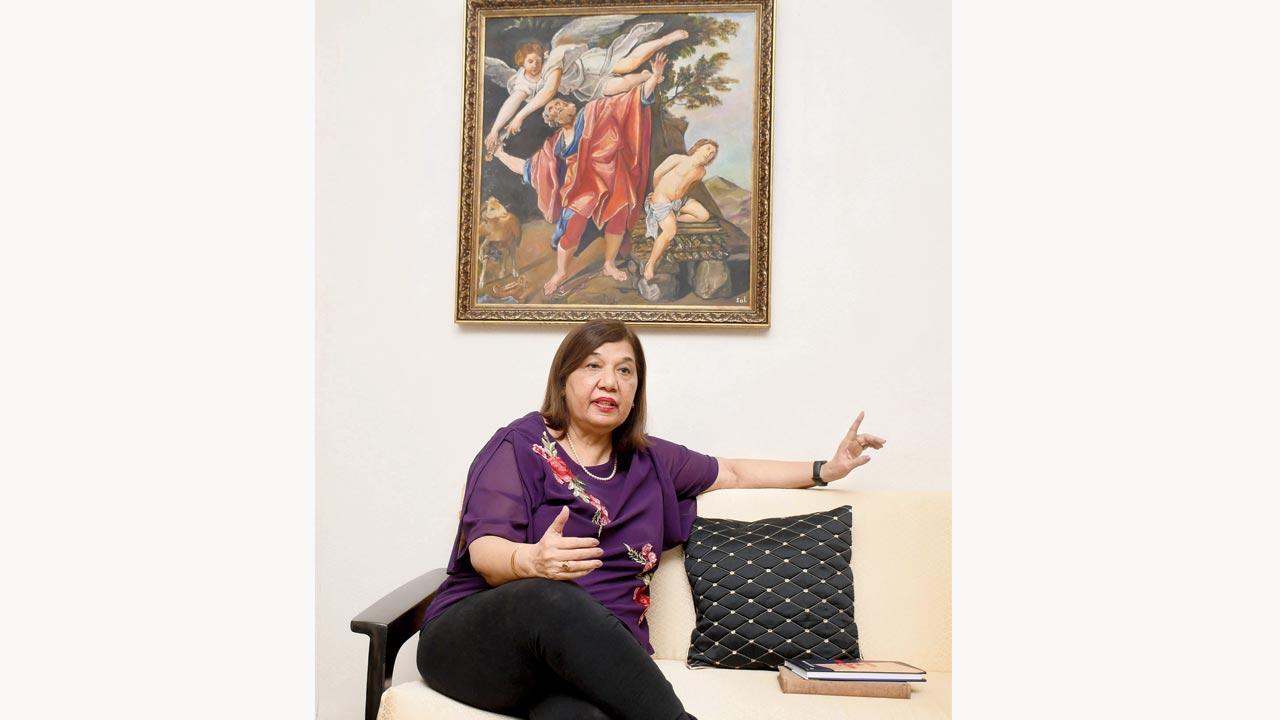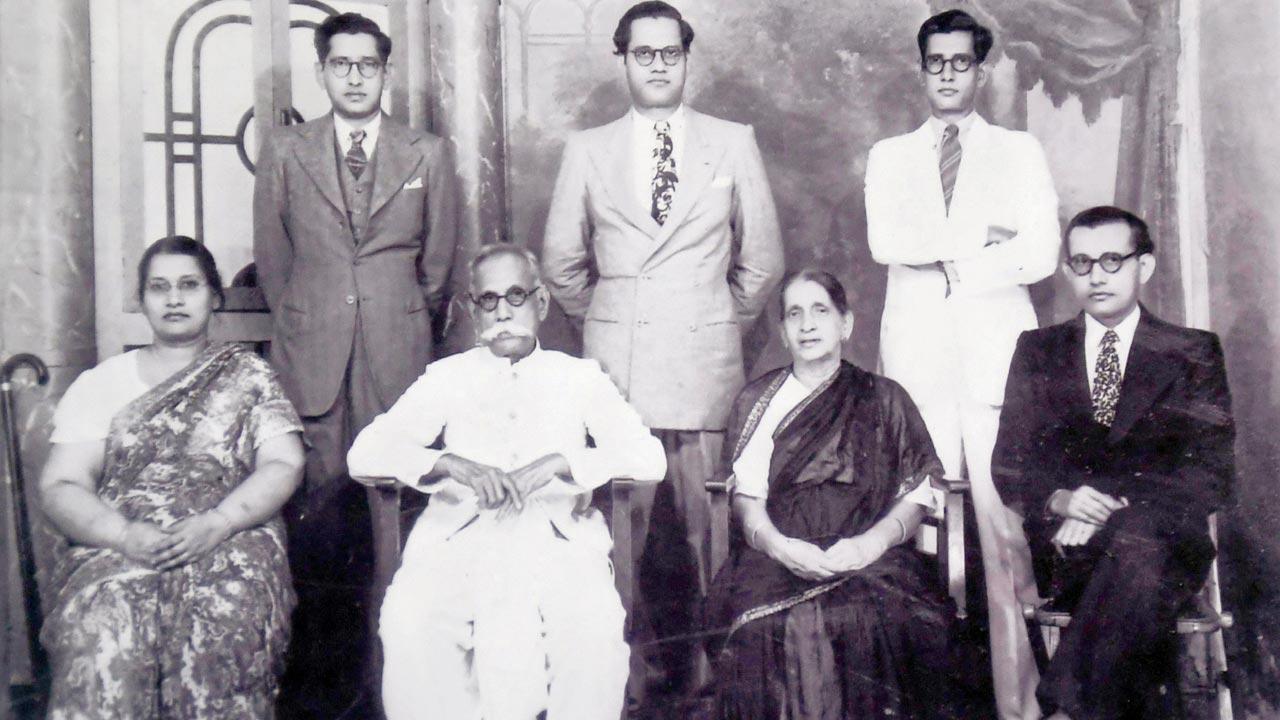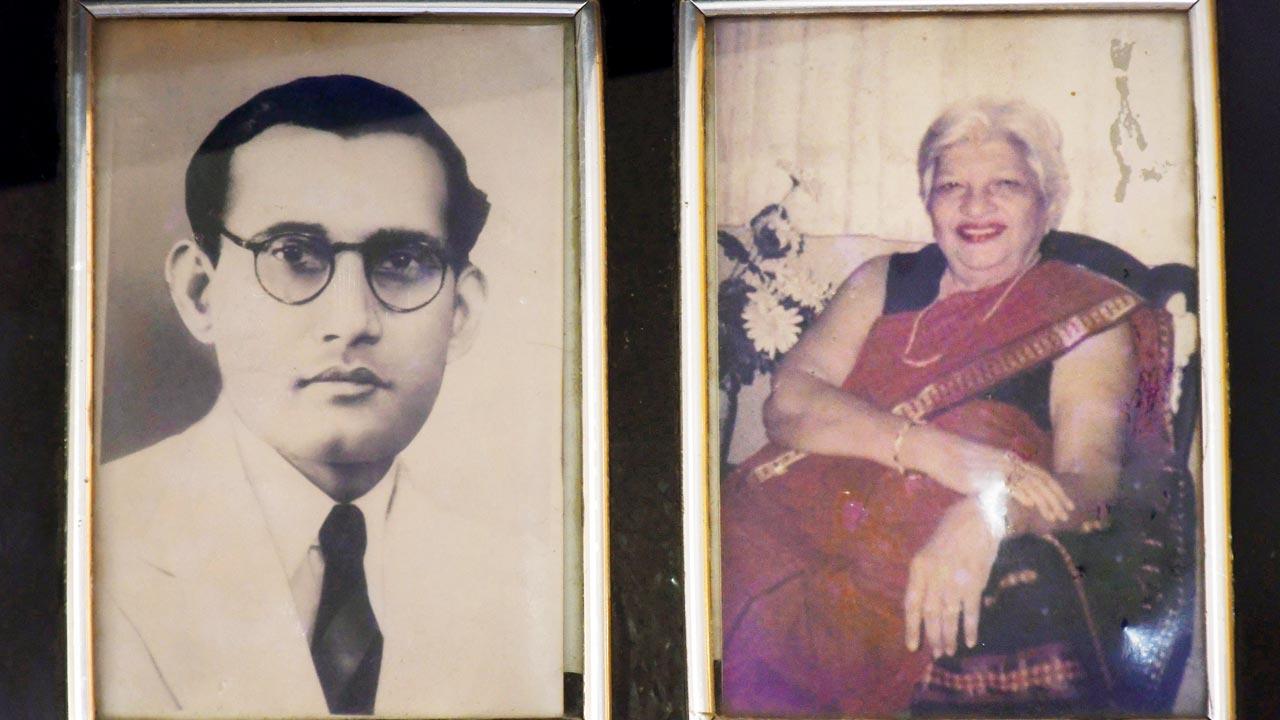The family of late Professor William Coelho has resurrected an old manuscript written by him over 50 years ago that offers insight into India’s constitutional history and how it goes back nearly two centuries

Serena D’Sa says that the book is a family effort with her husband Sal D’Sa and sister Manetta proofing the final text
Of late, the Constitution of India has become the subject of grave and intense scrutiny. Rights, liberties, freedom—all values enshrined in the Preamble—are being evoked now more than ever, to challenge undemocratic challenges.
ADVERTISEMENT
Not many, however, can claim to know the Constitution to the tee. For late Professor William Coelho, who had a small and undocumented role in its making, this was a life-long pursuit.
 Professor William Coelho’s handwritten manuscript from over 50 years ago. Pics/Ashish Raje
Professor William Coelho’s handwritten manuscript from over 50 years ago. Pics/Ashish Raje
Coelho’s daughters, Serena D’Sa, Anita Pinto and Manetta Ingarfield, have been holding on to a thick pile of a brittle, yellowed handwritten manuscript by him. It has been in their safekeep since his death in 1972. “This was his life’s work. He had put in long hours and visits to the Mumbai University and libraries to compile it. When he had taken ill, he requested me to type it all out,” shares Serena, when we meet at her Bandra West residence.
Her father began working on the book somewhere in the 1900s, when he was with the history department of St Xavier’s College. The idea was to document the genesis of Constitution writing in India. Though India adopted the Constitution three years after independence in 1950, Coelho highlighted how its seeds were first sown during the reign of the East India Company between 1765 and 1773 by the British Parliament—The Regulating Act (1773) of Warren Hastings was perhaps the first draft towards Constitution writing, and The Reforms of 1781 and Pitts India Act 1784 were the precursors of a Constitutional government. “He had already written the first book before his passing,” shares Serena. The second book in the series never saw the light of day. “It was only after my father’s 50th death anniversary that it hit me. I had to get it done, before it was too late,” says Serena adding, that her daughter Samatha Francis, also a history graduate, encouraged her to revisit her father’s manuscript. Around this time, Serena’s sister Anita came in touch with Qurate Books, which suggested that since Part One was ready, contents and bibliography included, they should go ahead and print it. The family members put their heads together, with Serena’s husband Sal D’Sa and sister Manetta proofing the final text, before sending it to the printer. The result—a just-released title, Foundation and History of the Indian Constitution (1600-1793).

William Coelho (bottom, extreme left) with his parents and siblings. The family hailed from Puttur, Mangalore
“My father’s book is a masterpiece in historical research, but when we as a family were going through it... we were delighted to learn that not only research scholars would benefit from it, even laymen would find it easy to read and digest. His research was deep and insightful, but his writing was simple.” While the book was released last week at Coelho’s alma mater St Xavier’s College, it has once again turned the spotlight on the life of the late noted scholar and constitutional expert who influenced and inspired several after him, including renowned urban historian and Australian scholar Dr Jim Masselos.
Born in Puttur, Mangalore, in 1905, Coelho, who graduated with a BA in Mathematics from St Aloysius College, followed his brothers to then Bombay, to pursue a Master’s degree in the subject at St Xavier’s College. Here, he got acquainted with renowned scholar Father Henry Heras, who convinced him to study history, instead. “He was so captivated by Fr Heras that he’d also join him to his archaeological excavations and studies up North,” says Serena. Coelho completed his MA by thesis in 1929, mastering the methodology of historical research, and producing The Hoysala Vamsa, a scholarly text made possible due to his knowledge of Kannada, which enabled him to scour through ancient historical material. It’s still referred to by students and researchers alike for its insight into the Hoysala dynasty of Mysore. Next, Coelho took up the study of law, but returned to St Xavier’s, after the college offered him a position in the history department in 1931. He remained associated with it for the next 35 years, says his daughter. “After Fr Heras passed away, he took over the Heras Institute of Indian History and Culture [the library and museum established by Fr Heras in 1926], as assistant director, and was instrumental in starting the Heras memorial lectures and later, the research journal, Indica,” shares Serena adding, that Dr Joan Dias, present director of the Heras Institute helped piece together tributes and other archival material, that were later published in the book.
 Coelho with his wife Nurbanoo Fazul. Pics courtesy/Serena D’Sa
Coelho with his wife Nurbanoo Fazul. Pics courtesy/Serena D’Sa
During his lifetime, Coelho took on multiple roles, heading the history department at St Xavier’s, serving as member of the governing board for Sophia College, writing columns for a leading daily, and mentoring students as a PG teacher and research guide at the Bombay University, including Masselos and Maharaja of Bikaner, Dr Karni Singh.
His interest in constitutional history began early on. Octogenarian Dr MD David, a noted academic who studied the constitutional history of England under him, says that Coelho made “a difficult and a rather dry subject” easy and interesting to understand. “His lectures were illuminating… it became one of my favourite subjects. Later, when I became a lecturer, I could teach Indian constitutional history with great success,” he tells mid-day. Another of his former students at St Xavier’s, Jocquim Mascarenhas, who read his book shared: “His prose is exact almost mathematical... The canvas he covers is wide, but he brings sharp focus on the flow of key events, characters and outcomes.”
Not known to many, the late academic was also consulted during the drafting of India’s Constitution. “He once told us about a senior leader calling him on a few occasions and seeking clarifications on the Constitution,” Serena says, adding that she only fully understood the legacy of her father when she was pursuing her MA dissertation at the University of Mumbai. “My father had been very ill during that time, and his student and our family friend, Dr A Cherian, was my guide. Though he was frail and bed-ridden, he became my unofficial research guide. I remember, once, when I needed some clarification, he asked me to refer to a particular volume at the University library.” Not only did he give her the exact location of the book in the vast maze of the library’s shelves, he also identified the chapter and page where she’d find the information. “When I opened the page, the markings in his handwriting were still there.”
 Subscribe today by clicking the link and stay updated with the latest news!" Click here!
Subscribe today by clicking the link and stay updated with the latest news!" Click here!







